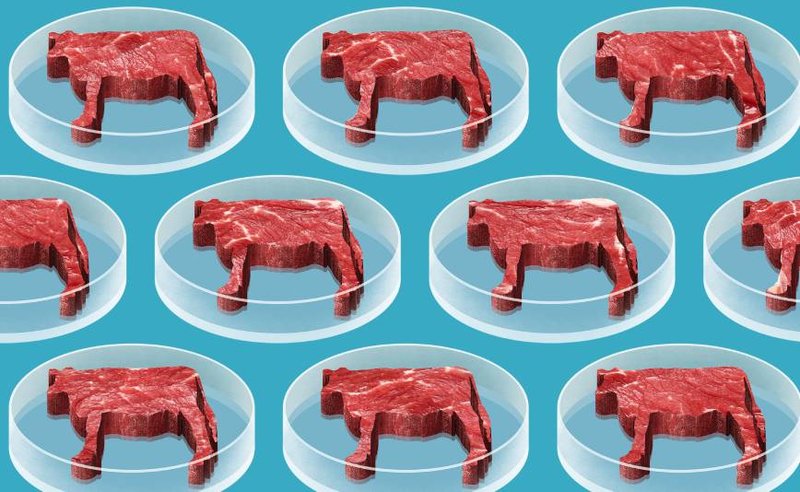Der Hauptnutzen der Industrialisierung der Landwirtschaft war zweifellos die Beseitigung des Hungers – zunächst in der reichen, westlichen Welt und danach allmählich in einem grösseren, globalen Massstab. Die meisten von uns halten heute billige Lebensmittel und Lebensmittelsicherheit für selbstverständlich. In der Tat werden billige Milch und billiges Fleisch fast schon als Grundrechte des Menschen angesehen. Doch nun dämmert die Erkenntnis, dass all dies auch eine Kehrseite hat – und die wird jeden Tag deutlicher. Das Naturkapital schrumpft immer weiter, während Bodenentwertung und Überfischung immer schneller voranschreiten. Um diese und andere damit zusammenhängende Probleme anzugehen, müssen wir neue Produktions- und Vertriebsmethoden entwickeln, die Art und Weise, wie wir essen, neu denken und verstehen, warum wir so viel unnötigen Abfall produzieren. Lebensmittelproduktion und -vertrieb dürfen nicht mehr nach dem Modell des US-Konsumenten funktionieren, bei dem sich jeder nach Belieben von einem gigantischen All-you-can-eat-Buffet bedienen kann. Das Bewusstsein für die Probleme steigt, aber es ist zu einem Kampf gegen die Zeit geworden. Was nützt es, gesunde Menschen auf einem kranken Planeten zu haben?
Wir müssen mit dem beginnen, was kurzfristig zu erreichen ist, um langfristig nachhaltigere Strategien umzusetzen. Derzeit ist das Bild gemischt: Während es einige Verbesserungen gab, sind andere Bemühungen gescheitert, und während einige Situationen besser werden, verschlechtern sich viele. Positiv ist, dass wir dank des Aufkommens der Genom-Editierung jetzt grüne, genetisch veränderte Organismen (GMO) haben. Aber Risiken können nie ausgeschlossen werden, solange der Faktor Mensch beteiligt ist. Ausserdem wird viel vom Verbraucherverhalten in der «ersten» Welt abhängen. Michael Pollan hatte die richtige Idee, als er sagte: «Essen Sie Lebensmittel. Nicht zu viel. Hauptsächlich Pflanzen.» Und wir können uns über die steigende Popularität des Veganismus – vor allem unter jungen Menschen – freuen, der sich in erstaunlich kurzer Zeit von einer Domäne einiger weniger Extremisten zu einem Mainstream-Trend entwickelt hat. Das zeigt, wie schnell sich das Ernährungsverhalten in Zukunft ändern könnte.
Unterschätzen Sie nicht die romantische Natur des Menschen. Ohne sie wären wir Zombies. Soul Food, der Geruch des Lokalen und ein Gefühl für den Ort als Teil unserer Identität gewinnen an Bedeutung. Wurzeln zu haben, ist etwas Positives und steht für eine Verbindung zur Natur – ein Bewusstsein für die Lebensräume und Ökosysteme von Menschen, Tieren, Pflanzen, Seen, Flüssen und Wäldern. Die ganze «Mikrobiozän versus Anthropozän»-Diskussion verdeutlicht, dass der Mensch von Viren, Bakterien, Pilzen etc. abhängig ist und dass wir nicht die «Herrscher des Universums» sind. Eine friedliche Koexistenz ist notwendig und möglich. Bio deckt ein Grundbedürfnis nach Romantik ab und spielt daher eine bedeutende Rolle. Aber wir müssen weiterhin konventionell verbessert, Bio und Green GMO gefördert anbauen und essen.
Das geht zurück auf alte Bedenken über gefährliche Manipulationen von Lebensmitteln durch Firmen wie Monsanto oder Syngenta. Aber wir müssen uns davon lösen, und der Weg dorthin führt über das Genome Editing. Die Gentechnik CRISPR/Cas wird uns auf die nächste Ebene der Diskussion bringen, nicht nur in Bezug auf die Bekämpfung von Viren wie COVID-19, sondern auch in Bezug auf die Lebensmittelproduktion. Es geht jetzt mehr um Biologie und weniger um Chemie – wie das anhaltende Bestreben, den Einsatz von Pestiziden zu reduzieren, zeigt.
Wie immer werde ich versuchen, einen umfassenden Überblick über die faszinierenden Trends in der aktuellen Food-Landschaft zu geben und die Verbindungen zwischen ihnen aufzeigen. Klare Orientierung und fokussiertes Wissen zu bieten, ist die Art des GDI, sich mit den grossen Ideen unserer Zeit auseinanderzusetzen.

Farms, Labs and Beyond: Fixing a Broken Food System
– Die Konferenz findet online und auf Englisch statt –